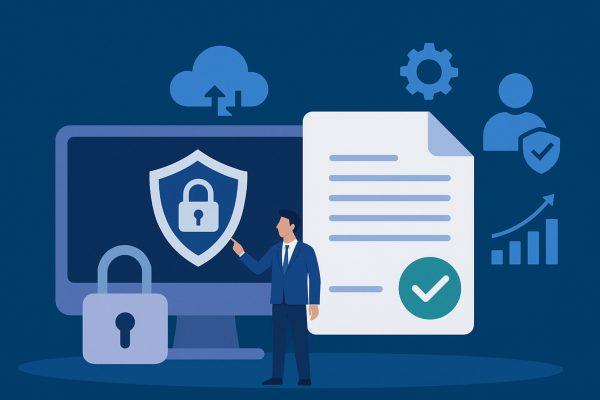Why Technical Safeguards Matter: A HIPAA Consultant’s Approach to Security Rule Compliance
In the healthcare industry, protecting patient data is more than just good practice—it’s the law. The Health Insurance Portability and Accountability Act (HIPAA) outlines strict guidelines that healthcare organizations must follow to protect sensitive health information. One of the most critical parts of HIPAA is the Security Rule, which emphasizes the importance of technical safeguards.
As a HIPAA consultant, one of the first things I explain to clients is that technical safeguards are the digital backbone of HIPAA compliance. They are not just IT protocols; they are essential tools that ensure the confidentiality, integrity, and availability of electronic protected health information (ePHI). In this blog, we’ll explore why technical safeguards matter and how a HIPAA consultant helps organizations meet compliance goals effectively.
What Are Technical Safeguards?
Technical safeguards are automated or technology-based protections that are required by HIPAA’s Security Rule to protect ePHI. These safeguards apply to electronic systems, software, and data. Their main purpose is to:
- Prevent unauthorized access
- Protect data integrity
- Secure data during transmission and storage
HIPAA outlines four main types of technical safeguards:
- Access Control
- Audit Controls
- Integrity Controls
- Transmission Security
Let’s break these down and see how each contributes to overall compliance.
1. Access Control – Who Gets In?
Access control means ensuring only authorized individuals can access ePHI. HIPAA requires that organizations implement technical policies and procedures to limit access based on user roles and responsibilities.
Consultant’s Tip:
A HIPAA consultant will help you define user roles clearly and implement multi-factor authentication (MFA), automatic logoffs, and role-based access control (RBAC). These measures are vital to prevent internal and external data breaches.
2. Audit Controls – Keeping a Digital Trail
Audit controls involve tracking who accessed what information, when, and how. Think of this as a digital trail that can help identify any suspicious or unauthorized activity.
Consultant’s Tip:
We help clients configure audit logs in their electronic health record (EHR) systems and cloud platforms. These logs should be monitored regularly, and suspicious activity should be reported immediately to avoid non-compliance or data theft.
3. Integrity Controls – Making Sure the Data Stays Accurate
HIPAA requires organizations to protect ePHI from being altered or destroyed in an unauthorized manner. That’s where integrity controls come in.
Consultant’s Tip:
A consultant may recommend tools such as checksums, hashing, and digital signatures to ensure the data hasn’t been tampered with. This is especially important when data is being transferred between systems.
4. Transmission Security – Safe Travels for Your Data
Transmission security ensures that ePHI is protected during electronic transmission—for example, when sending emails or transferring files between healthcare providers.
Consultant’s Tip:
Encryption is a must. A HIPAA consultant will often assess current email, messaging, and file transfer systems and help organizations implement end-to-end encryption and secure email gateways.
Why Technical Safeguards Are Non-Negotiable
1. Cybersecurity Threats Are Increasing
Healthcare organizations are one of the top targets for cyberattacks. Without strong technical safeguards, ePHI can be stolen, altered, or held for ransom. Consultants help identify these weak points and suggest solutions before it’s too late.
2. HIPAA Penalties Are Costly
Non-compliance with HIPAA can lead to severe penalties, both financial and legal. Implementing technical safeguards is one of the easiest ways to demonstrate compliance during audits.
3. Trust and Reputation
Patients trust healthcare providers with their most sensitive information. Any data breach can seriously damage that trust. Technical safeguards help you maintain patient confidence.
A HIPAA Consultant’s Approach to Technical Safeguards
Every healthcare organization is different, and so is its risk profile. A HIPAA consultant provides a tailored, step-by-step approach to ensure your technical safeguards meet HIPAA’s requirements:
Step 1: Risk Assessment
We begin with a technical risk assessment to identify vulnerabilities in your current system.
Step 2: Gap Analysis
We compare your existing safeguards with HIPAA requirements and industry best practices to spot compliance gaps.
Step 3: Implementation Plan
Based on the gaps, we create a roadmap to implement or improve technical safeguards—access control systems, encryption tools, audit trails, and more.
Step 4: Training & Documentation
Proper training ensures your staff understands how to use technical safeguards correctly. Plus, we help document every step to prepare for audits.
Step 5: Ongoing Monitoring
HIPAA compliance is not a one-time task. Continuous monitoring, updates, and regular audits keep your safeguards current and effective.
Conclusion
Technical safeguards are not just checkboxes on a HIPAA compliance form—they are active, dynamic defenses that protect your systems and your patients’ trust. From encryption and access control to real-time monitoring, each safeguard plays a vital role in securing sensitive healthcare data.
Whether you’re a small clinic or a large hospital network, working with a HIPAA consultant ensures you’re not only compliant but also prepared, protected, and proactive.
Author







